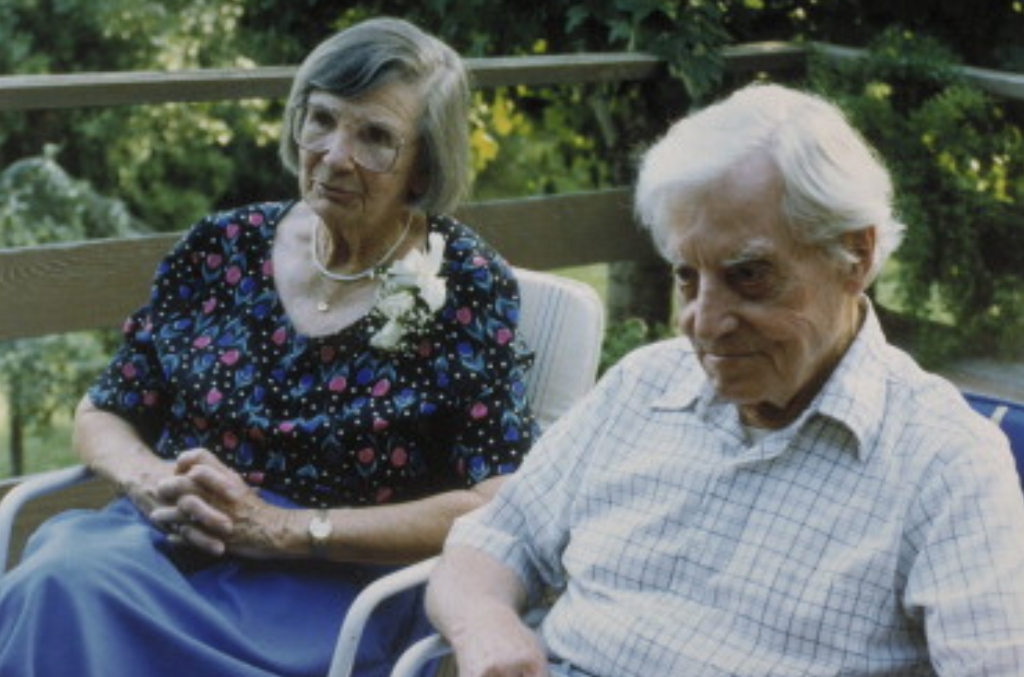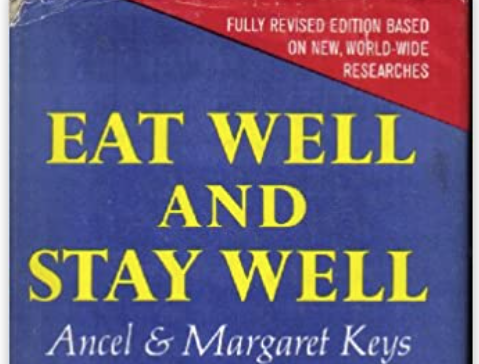Heroes and Villains No. 4 Margaret Keys
Eat Well and Stay Well
In 1959 Margaret and Ancel Keys wrote their first cookery book Eat Well and Stay Well. Aimed at the great American public, the Keyses wanted to bring the important elements of what they believed to be the heart-healthy diets of Crete and Southern Italy to the heart-plagued affluent diners of the United States’ Midwest.

In Eat Well and Stay Well Ancel wrote with great authority on the science of nutrition as he saw it. Fat in his opinion, and saturated fat in particular, was to be avoided. Fat he believed was the artery-clogging stuff that caused heart attacks (dear reader, he was wrong). Margaret, a skilled cook, and contributed chapters on food ingredient choice and suggested recipes. She researched her brief well: to produce manageable low-fat but tasty meals. The writing of both authors was opinionated and direct. Margaret’s, in particular, is enjoyable to read, a warm character shines through.
So, what did Margaret and Ancel and Margaret have for dinner? Did they feast on chips and pizza, cake and biscuits like their fellow low-fat compliant citizens? Not a bit of it. If their books are anything to go by they dined well, but frugally. They home cooked; no processed or packaged foods for them. No take-aways. Margaret’s menus do include some recipes with potato and rice, but her portion sizes were modest. They did eat bread but it was always homemade from whole grain flours. They did have some sugar but in small quantities and almost always as an ingredient and not an added condiment. Sugary sodas (fizzy pop) did not appear in their menus at all, although wine did (‘one bottle should suffice for four people’). Margaret had particular views on various wines and beverages, she had after all travelled widely and with Ancel they lived much of their later years together near Pioppi in southern Italy. Their menus, not surprisingly, majored on fresh fruits and vegetables, all in season. They ate fish, small amounts of poultry, but very little red meat and dairy. They used plant (not vegetable) oils regularly, especially olive oil. They were not prone to indulging in snacks. Theirs was a fat-lite version of a northern Mediterranean diet, and they obviously enjoyed it. But, like Lulu Hunt Peters before them, one has to ask whether the Keys’ diet worked in spite of, rather than because of, their low-fat beliefs? Just as Hunt Peters’ low-calorie diet was in fact low-carb, so the Keys’ diet it turns out was pretty low-carb too.
Most modern ‘official’ diets promote a dumbed-down version of the Mediterranean Diet for the masses. The myriad commercial perversions of Elizabeth David, Claudia Roden and even Margaret Keys’ Mediterranean approaches to healthy and enjoyable dining, do not do justice to the real cuisine they loved. Instead, we have been cautioned against many of its ingredients, notably fats, oils and dairy, and been served up instead with acres of pizza, mounds of pasta, and wodges of soggy bread. And under the fat-seeking radar have slid mountains of potato, silos of sugar, and vast lakes of corn syrup. All of which push up blood glucose levels, and inevitably insulin too; and that glucose/insulin combo’ is the number one thing that makes you fat and keeps you fat, and much else besides.

Ancel Keys continued to work through his late nineties, dying just short of his 101st birthday in 2004. His wife Margaret died a couple of years later aged 97 years. Should we link their longevity with their diet? No, because that would be to confuse association with causation. And we wouldn’t want to do that.

